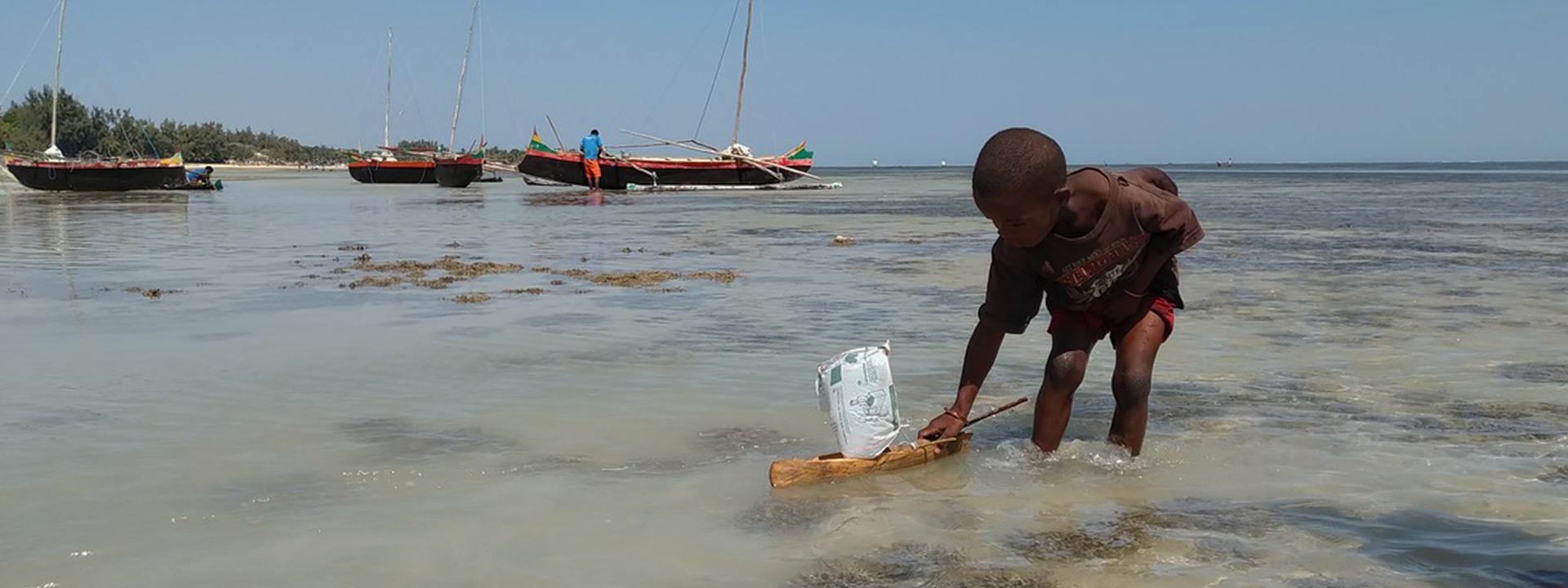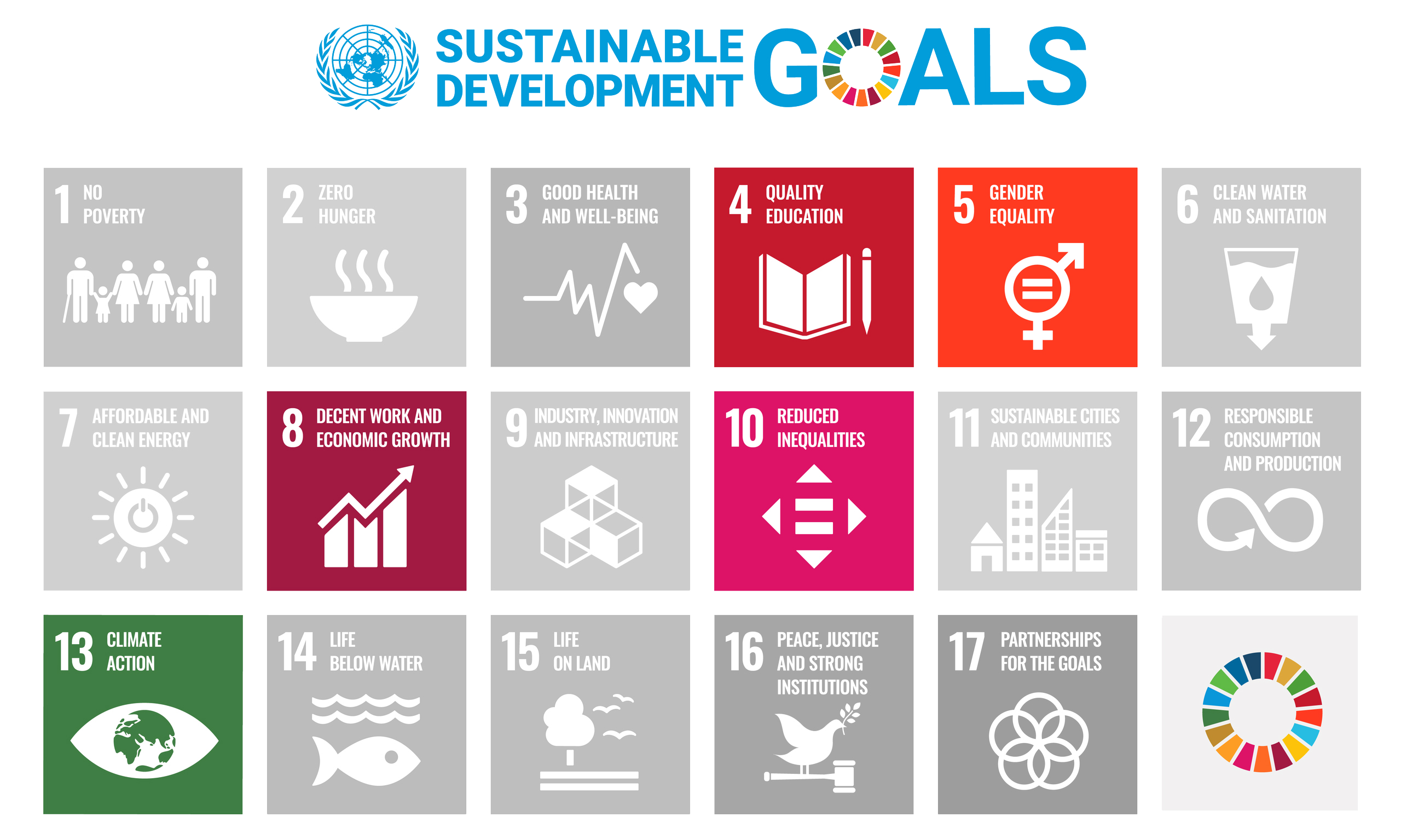Per Esempio aims through its actions to contribute both locally and internationally to global development by promoting human welfare and protecting the environment. To do this, we adopt policies such as the gender mainstreaming policy, the child policy, and the green impact policy, developed and finalised following internal participatory training processes conducted by sector specialists who accompany the organisation’s management team and members towards their definition and adoption.
Our focus of intervention is specifically framed within 5 of the 17 SDGs (Sustainable Development Goals) and 19 of its 169 sub-goals, within a map crossing the organisation’s areas of action with the single specific objectives for sustainable development set in 2015 by the governments of the 193 UN member states through the 2030 Agenda. Contributing to the achievement of the goals for the next decade is not an easy task but it is the duty of governments, of all citizens and intermediate bodies that, as in the case of Per Esempio, act in a participatory and organised manner.
The 2030 agenda and the declination of many of its goals represent an important step forward, certainly not exhaustive, for the achievement of full peace and social justice to which our organisation aspires. The course is set, but further efforts are needed, a real paradigm shift to lift up the future of the planet and its suffering inhabitants. In this regard, linked to policy documents such as “La Carta di Palermo del 2015”, we cannot, for example, be satisfied by an approach that still considers migratory flows as a phenomenon to be governed according to “order, security and regularity” (sdg’s objective 10.7) rather than affirming the free movement of every human being as an inseparable right that governments themselves should protect.
At the same time, we are aware of and look positively at the results of the complex and meticolous mediation thanks to which in 2015, through the signature of almost 200 heads of state, the 2030 Agenda finally managed to break, at least syntactically, the equivalence between migration and crime
There is a long way to go, the path seems to us to be right and we are on our way to walk it as protagonists with the ambition of contributing to writing a small piece of history.
Fight against educational poverty
4. Ensure inclusive and equitable quality education and promote lifelong learning opportunities for all
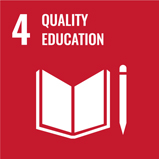
4.1: By 2030, ensure that all girls and boys complete free, equitable and quality primary and secondary education leading to relevant and effective learning outcomes.
4.2: By 2030, ensure that all girls and boys have access to quality early childhood development, care and pre-primary education so that they are ready for primary education.
4.4: By 2030, substantially increase the number of youth and adults who have relevant skills, including technical and vocational skills, for employment, decent jobs and entrepreneurship.
4.5: By 2030, eliminate gender disparities in education and ensure equal access to all levels of education and vocational training for the vulnerable, including persons with disabilities, indigenous peoples and children in vulnerable situations.
4.6: By 2030, ensure that all youth and a substantial proportion of adults, both men and women, achieve literacy and numeracy.
4.7: By 2030, ensure that all learners acquire the knowledge and skills needed to promote sustainable development, including, among others, through education for sustainable development and sustainable lifestyles, human rights, gender equality, promotion of a culture of peace and non-violence, global citizenship and appreciation of cultural diversity and of culture’s contribution to sustainable development.
8. Promote sustained, inclusive and sustainable economic growth, full and productive employment and decent work for all
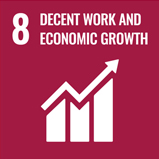
8.6: By 2020, substantially reduce the proportion of youth not in employment, education or training.
13. Take urgent action to combat climate change and its impacts
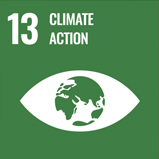
International mobility
13. Take urgent action to combat climate change and its impacts

10. Reduce inequality within and among countries
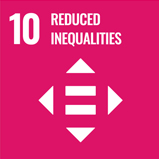
10.7: Facilitate orderly, safe, regular and responsible migration and mobility of people, including through the implementation of planned and well-managed migration policies
Gender equality
4. Ensure inclusive and equitable quality education and promote lifelong learning opportunities for all

4.5: By 2030, eliminate gender disparities in education and ensure equal access to all levels of education and vocational training for the vulnerable, including persons with disabilities, indigenous peoples and children in vulnerable situations.
5. Achieve gender equality and empower all women and girls

5.1: End all forms of discrimination against all women and girls everywhere.
5.2: Eliminate all forms of violence against all women and girls in the public and private spheres, including trafficking and sexual and other types of exploitation.
5.5: Ensure women’s full and effective participation and equal opportunities for leadership at all levels of decision-making in political, economic and public life.
10. Reduce inequality within and among countries

10.2: By 2030, empower and promote the social, economic and political inclusion of all, irrespective of age, sex, disability, race, ethnicity, origin, religion or economic or other status.
Social inclusion
4. Ensure inclusive and equitable quality education and promote lifelong learning opportunities for all

4.5: By 2030, eliminate gender disparities in education and ensure equal access to all levels of education and vocational training for the vulnerable, including persons with disabilities, indigenous peoples and children in vulnerable situations.
5. Achieve gender equality and empower all women and girls

5.1: End all forms of discrimination against all women and girls everywhere.
5.5: Ensure women’s full and effective participation and equal opportunities for leadership at all levels of decision-making in political, economic and public life.
8. Promote sustained, inclusive and sustainable economic growth, full and productive employment and decent work for all

8.3: Promote development-oriented policies that support productive activities, decent job creation, entrepreneurship, creativity and innovation, and encourage the formalization and growth of micro-, small- and medium-sized enterprises, including through access to financial services.
8.6: By 2020, substantially reduce the proportion of youth not in employment, education or training.
10. Reduce inequality within and among countries

10.2: By 2030, empower and promote the social, economic and political inclusion of all, irrespective of age, sex, disability, race, ethnicity, origin, religion or economic or other status.


